Bad breath in dogs, often dismissed as a minor inconvenience, can be a sign of more significant health issues. While occasional odor might result from something your dog ate, persistent bad breath—known as halitosis—typically indicates poor oral hygiene or an underlying medical condition.
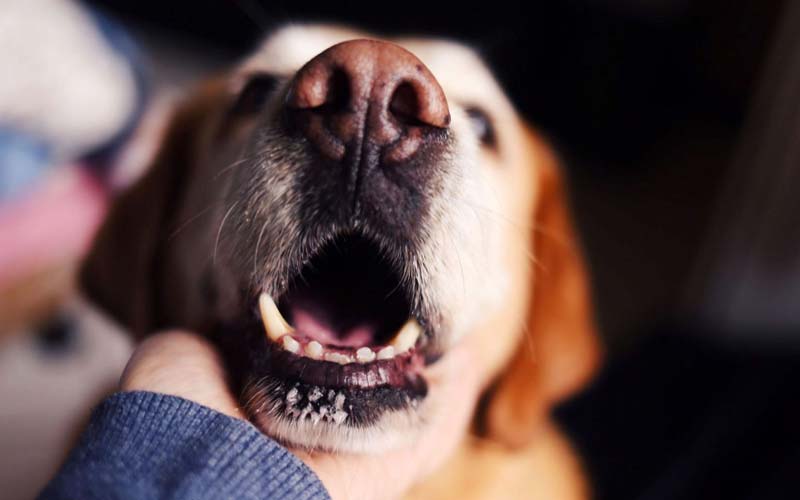
Understanding the root cause of your dog’s bad breath is crucial. It could stem from simple factors like plaque buildup or dietary habits, or point to serious health concerns such as dental disease, diabetes, or kidney problems. Left untreated, these issues can affect not only your dog’s mouth but also their overall well-being.
In this article, we’ll explore the common causes of bad breath in dogs, discuss why it’s important to address the problem, and share actionable tips for improving your furry friend’s oral health. By the end, you’ll have the knowledge to tackle bad breath and help your dog live a healthier, happier life.
1. Understanding the Causes of Bad Breath in Dogs
Bad breath in dogs, though common, often signals an underlying issue that requires attention. Identifying the cause is the first step to addressing and preventing it.
1. Poor Dental Hygiene
Plaque and tartar buildup on your dog’s teeth are primary contributors to bad breath. When food particles and bacteria accumulate, they form a sticky film (plaque) that hardens into tartar if not removed. Over time, this buildup leads to gum inflammation, known as gingivitis, and can progress to periodontal disease. These conditions cause discomfort, infection, and a persistent foul odor. Neglecting dental hygiene doesn’t just affect the mouth—it can allow bacteria to enter the bloodstream, potentially leading to serious health complications.
2. Dietary Habits
What your dog eats plays a significant role in their breath’s smell. Dogs with access to garbage, spoiled food, or feces may develop bad breath due to the decay and bacteria in these items. Additionally, a poor-quality diet lacking essential nutrients can impact their overall health, including oral health. Feeding your dog a balanced, high-quality diet helps minimize bad breath and supports their well-being.
3. Underlying Health Conditions
Persistent bad breath may be a symptom of systemic health issues:
- Kidney Disease: Produces a distinct ammonia-like smell in your dog’s breath.
- Diabetes: A sweet or fruity odor could indicate high blood sugar levels.
- Liver Disease: Often accompanied by a foul odor, yellowing of the gums or eyes, and other symptoms.
If bad breath is paired with these signs, prompt veterinary attention is essential to diagnose and manage the condition.
4. Oral Infections and Foreign Objects
Infections in the mouth, often caused by injuries or stuck foreign objects like bones or sticks, can lead to bad breath. These infections may result in abscesses or swelling, both of which emit unpleasant odors. Regularly inspecting your dog’s mouth can help detect and prevent these issues early.
5. Oral Tumors
Growths or tumors in the mouth can cause bad breath due to necrotic tissue as the tumor grows and affects the surrounding area. If you notice unusual lumps, swelling, or bleeding in your dog’s mouth, seek veterinary advice to rule out serious conditions.
By understanding these causes, you can take proactive steps to improve your dog’s breath and ensure their overall health. Recognizing the signs early helps address problems before they escalate.
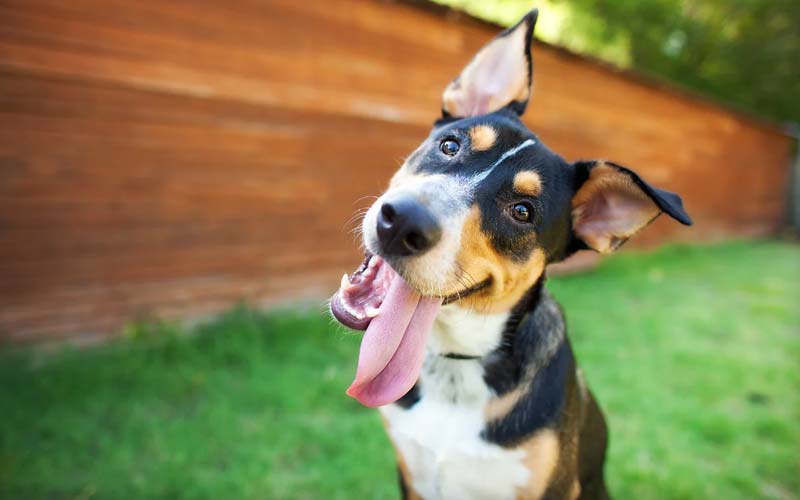
2. Why You Should Take Bad Breath Seriously
While it’s easy to dismiss bad breath in dogs as a harmless quirk, it often indicates underlying issues that can impact your dog’s overall health. Addressing it promptly is crucial to preventing more serious complications.
The Connection Between Oral Health and Overall Health
Your dog’s mouth isn’t isolated from the rest of their body—it’s a gateway to their overall health. Poor oral hygiene allows bacteria to thrive, leading to dental diseases like gingivitis or periodontitis. These bacteria don’t just stay in the mouth; they can enter the bloodstream, traveling to vital organs such as the heart, liver, and kidneys, potentially causing systemic infections.
Systemic Risks of Untreated Dental Problems
Untreated dental issues can have far-reaching consequences:
- Heart Disease: Bacteria from infected gums can lead to conditions like endocarditis, an inflammation of the heart lining.
- Kidney and Liver Damage: Chronic exposure to oral bacteria can strain these organs, leading to long-term damage.
- Chronic Pain and Inflammation: Dental disease causes discomfort, affecting your dog’s appetite, behavior, and quality of life.
Recognizing Bad Breath as a Warning Sign
Persistent bad breath is more than just a nuisance—it’s a red flag. It might point to conditions like gum disease, oral infections, or systemic illnesses like diabetes or kidney disease. Ignoring these signs can delay treatment, worsening your dog’s condition and potentially leading to severe complications.
By understanding the importance of oral health, you can protect your dog’s well-being. Regular dental care and prompt attention to bad breath can make a significant difference in their quality of life and longevity.

3. Preventive Measures for Fresh Dog Breath
Keeping your dog’s breath fresh requires consistent care and attention to their oral hygiene and overall health. Here are some practical steps to prevent bad breath and promote long-term dental health.
Routine Dental Care
Brushing Your Dog’s Teeth
- Use pet-safe toothpaste and a dog-specific toothbrush to clean their teeth regularly.
- Brushing removes plaque before it hardens into tartar, reducing the risk of gum disease and bad breath.
Using Dental Wipes and Mouth Rinses
- Dental wipes are an alternative for dogs that resist brushing.
- Pet-safe mouth rinses can help reduce bacteria and freshen breath between brushings.
Diet and Chewing Habits
Feeding a Balanced Diet
- Provide high-quality food designed for dental health, which can help reduce plaque buildup.
- Avoid feeding table scraps, which may contribute to bad breath and poor dental hygiene.
Providing Dental Chews and Toys
- Chewing stimulates saliva production, which helps clean teeth naturally.
- Look for toys and treats specifically designed to promote dental health.
Hydration and Clean Water
- Always ensure your dog has access to fresh, clean water.
- Proper hydration supports saliva production, which plays a crucial role in maintaining oral hygiene.
Regular Veterinary Checkups
- Schedule routine dental cleanings and oral exams with your veterinarian.
- Professional cleanings can address tartar buildup and detect early signs of dental disease.
- Regular checkups also allow your vet to monitor your dog’s overall oral and physical health.
By incorporating these preventive measures into your dog’s routine, you can minimize bad breath and promote a healthier, happier life for your furry friend.
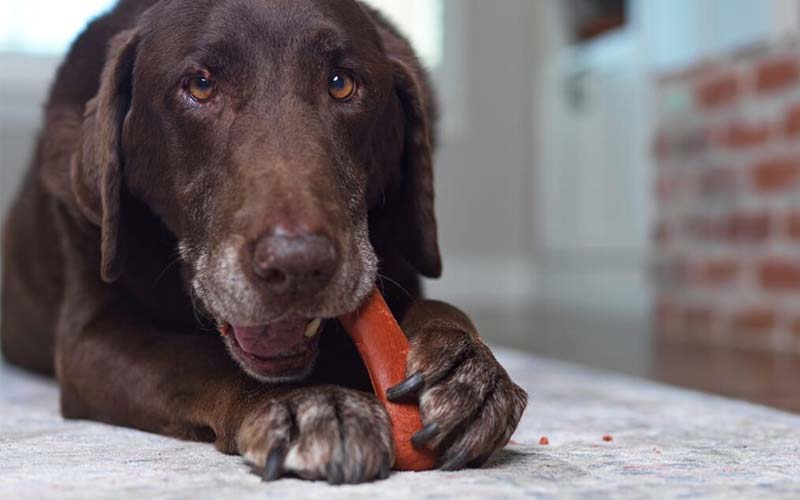
4. Home Remedies for Bad Dog Breath
If your dog’s bad breath persists despite routine care, simple home remedies can help freshen their breath naturally. These solutions are safe and easy to incorporate into your dog’s routine.
1. Parsley or Mint Additions
- Why It Works: Parsley and mint are natural breath fresheners with antibacterial properties that can combat odor-causing bacteria in your dog’s mouth.
- How to Use: Chop a small amount of fresh parsley or mint and mix it into your dog’s food. Avoid overuse, as too much can upset their stomach.
2. Apple Cider Vinegar
- Why It Works: Apple cider vinegar has antimicrobial properties that can help reduce bacteria in your dog’s mouth and digestive system, improving breath.
- How to Use: Add a few drops of apple cider vinegar to your dog’s water bowl once daily. Be cautious not to use too much, as its acidity can irritate their stomach.
3. Coconut Oil
- Why It Works: Coconut oil contains antimicrobial compounds that promote oral hygiene and overall health. Plus, most dogs enjoy its taste.
- How to Use: Mix a teaspoon of coconut oil into your dog’s food daily, depending on their size. It can also be used to brush their teeth for an extra cleaning boost.
These remedies are effective and gentle, but they work best alongside routine dental care and a balanced diet. If bad breath persists, consult your veterinarian to rule out underlying health issues.
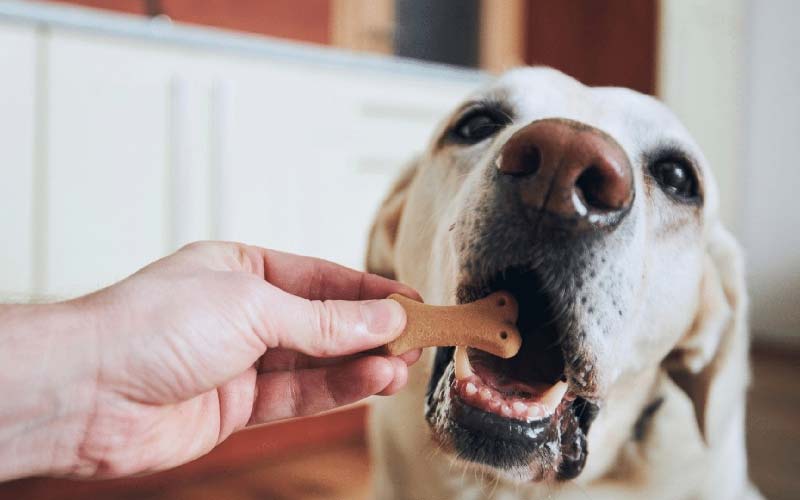
5. When to See a Veterinarian
While at-home care and preventive measures can often keep your dog’s breath fresh, there are times when bad breath may signal a more serious issue. If you notice any of the following, it’s important to consult your veterinarian.
1. Persistent Bad Breath Despite At-Home Care
If your dog’s bad breath doesn’t improve with regular brushing, dental chews, or other home remedies, it may indicate an underlying health condition. Chronic bad breath can be a sign of gum disease, infections, or even systemic issues like kidney or liver disease. A veterinarian can assess the situation and provide a more targeted treatment plan.
2. Additional Symptoms
When bad breath is accompanied by other concerning symptoms, it’s crucial to seek professional help:
- Vomiting or Diarrhea: These could point to gastrointestinal issues or systemic conditions like diabetes.
- Loss of Appetite: A sudden decrease in food intake may suggest oral pain, infection, or an internal problem.
- Behavioral Changes: Lethargy, irritability, or difficulty chewing can indicate pain or illness, including dental disease.
3. Noticing Growths, Bleeding, or Inflammation in Your Dog’s Mouth
Lumps, sores, or bleeding in your dog’s mouth, as well as swollen or inflamed gums, could be signs of infections, oral tumors, or other serious conditions. These require immediate veterinary attention to rule out or treat potentially life-threatening issues.
Addressing bad breath early, especially when it’s accompanied by other symptoms, can help ensure your dog’s health and comfort. Regular veterinary checkups are key to catching problems before they escalate.
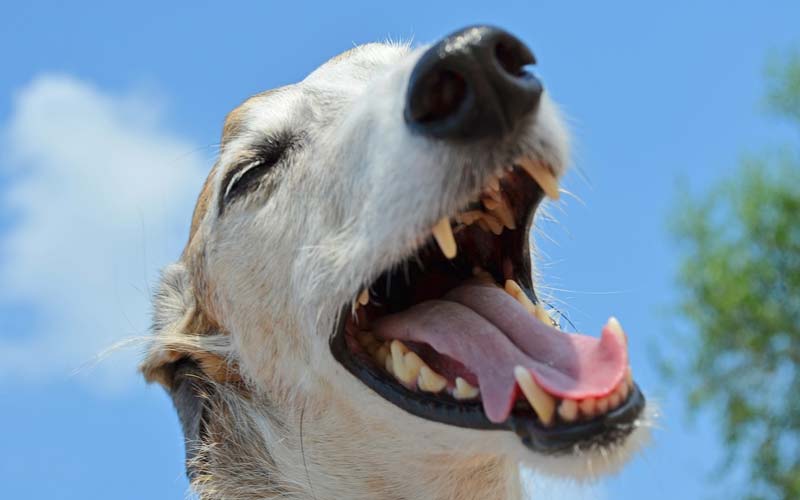
Conclusion: Keeping Your Dog’s Breath Fresh and Their Health in Check
Bad breath in dogs is more than just a nuisance—it’s often a sign of underlying health issues that can affect your pet’s overall well-being. From poor dental hygiene and dietary habits to serious conditions like kidney disease or diabetes, understanding the root cause of your dog’s bad breath is essential for addressing it effectively.
By adopting a routine of regular dental care, providing a balanced diet, and using natural remedies, you can significantly improve your dog’s breath and prevent future problems. However, if bad breath persists or is accompanied by other symptoms like vomiting, loss of appetite, or mouth growths, it’s important to consult your veterinarian as soon as possible.
Taking action now, whether through preventive care or seeking professional advice, will help ensure your dog’s health and comfort for years to come. Fresh breath starts with a healthy mouth, and a healthy mouth leads to a happier, longer life for your furry friend.